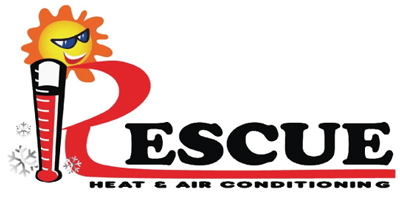Purchasing your first home is exciting. You’re probably juggling a dozen things or more about making the right choice. We believe that understanding your future HVAC system is essential. The property’s HVAC system represents a substantial investment and potential source of long-term costs, which is why due diligence helps all first-time homebuyers.
In this guide, we’ll share seven tips for discovering all there is to know about a home’s heating and cooling setup. And if you want a more in-depth opinion from the pros, feel free to call Rescue Heating & Air. Our seasoned technicians can share details about your options with industry insights that are second to none.
1. What HVAC System Are You Working With?
Start by identifying what kind of HVAC system the home includes. Furnaces generally last longer compared to air conditioners, and newer types of HVAC equipment like heat pumps feature average life spans that are even longer. Getting the details on the make and specific model ensures you have a clear idea of how much maintenance it will require.
2. How Old Is the Current HVAC System?
Another good idea is to find out how old the HVAC system is when you’re considering a new home. In general, HVAC systems should survive for around 10-12 years. Having the knowledge of when it was installed helps you prepare for any needed servicing or when it might shut down for good. Older systems may be more vulnerable to problems, so fiscal planning for a replacement unit might be needed faster than expected.
3. Does the System Have a Warranty?
Don’t forget to look into whether the HVAC system is still under warranty. If it is, this can assist with maintenance expenses. HVAC warranties should take care of parts and labor, but specifics will vary. Don’t forget to look into any terms you don’t recognize to make sure you fully understand your coverage and potential out-of-pocket costs.
4. Has the System Ever Been Professionally Serviced or Maintained?
Next, examine the maintenance history of the HVAC system, if the records are accessible. This service history can reveal if the repair needs are high or how much upkeep was provided. Ask about records for key tasks such as changing the air filter, which means it enjoyed more regularly scheduled tune-ups.
5. Are You Aware of the System’s Energy Efficiency Ratings?
Purchasing a home with a heating and cooling system with strong energy efficiency means more manageable utility bills and less of an impact on the environment. Check out the seasonal energy efficiency ratio (SEER) ratings for air conditioning and the annual fuel utilization efficiency (AFUE) for furnaces. Higher SEER ratings mean better cooling across the entire season, while strong AFUE ratings illustrate that the fuel is more effectively burned for useable heat.
6. Have You Noticed Signs of Problems During Your Inspection?
Even if you don’t have experience in HVAC systems, it’s still a good idea to check out the HVAC system yourself. Keep an eye out for any concerning items that might have been overlooked. This might consist of odd sounds, spots with uneven heating or cooling and attempts to cover up any obvious damage.
7. Have You Sought Out Expert Advice?
If you’re unsure about the condition of the HVAC system, it’s beneficial to get a professional opinion from experienced HVAC professionals. They will be much more likely to catch things you might miss, such as refrigerant leaks, damage to the wiring or damaged ductwork.
A Call with Rescue Heating & Air Helps Take the Stress Out of Your Home-Buying Journey
Selecting your first home should be thrilling, and Rescue Heating & Air wants to ensure that doesn’t change. Connect with us at 361-265-4371. We can talk about how our HVAC services give you peace of mind, giving you what you need to make an offer with confidence.
